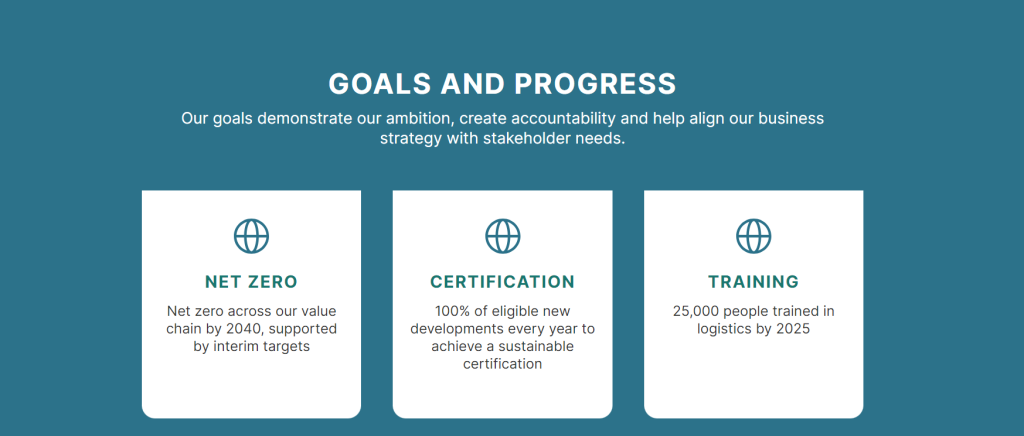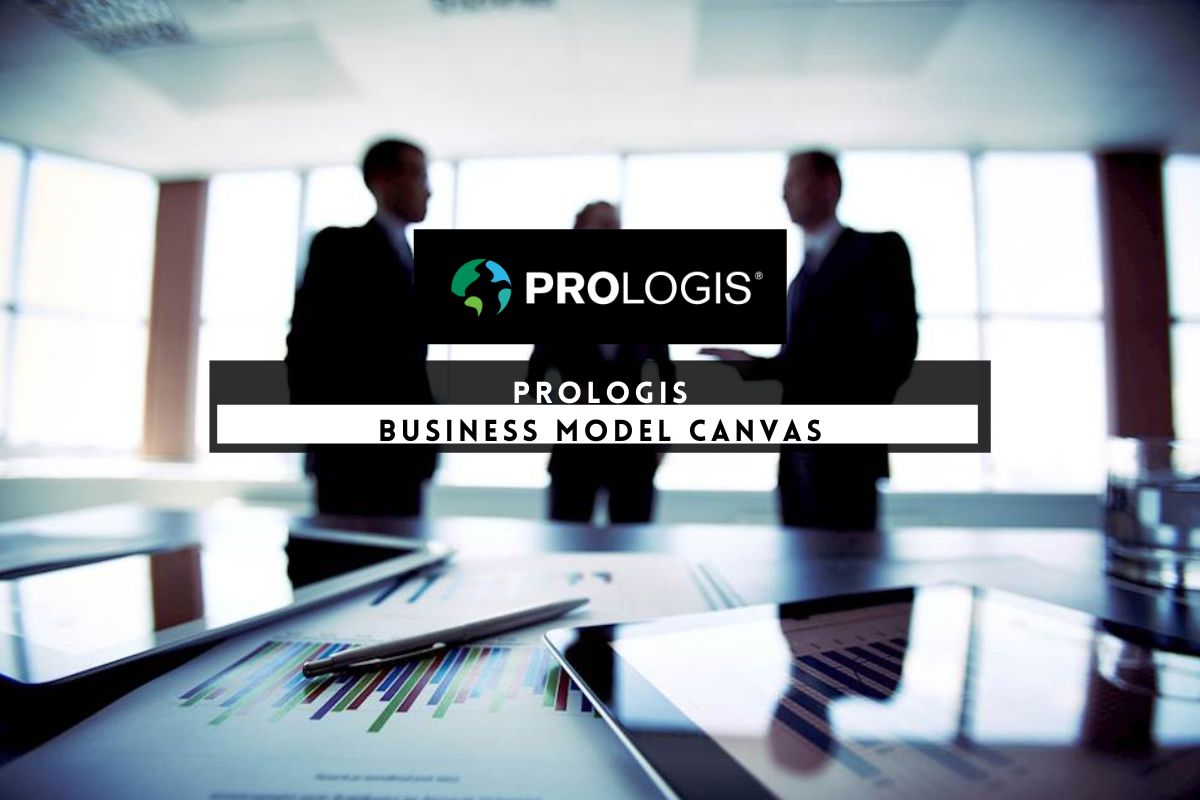Table of Contents
ToggleA Brief History of Prologis
Prologis, Inc. is a global real estate investment trust (REIT) specializing in industrial logistics properties. The company was founded in 1983 by Hamid R. Moghadam and William E. Sullivan.
Originally named Security Capital Industrial Trust, the company went through several mergers and acquisitions in the late 1990s and early 2000s, eventually becoming Prologis, Inc. in 1999. The company grew rapidly and became a leader in the development, acquisition, and management of distribution and industrial facilities around the world.
Prologis went public in 1994 and has since expanded its portfolio to include properties in major logistics markets in North America, Europe, and Asia. The company has also been involved in several high-profile mergers and acquisitions, including the acquisition of Catellus Development Corporation in 2005 and the merger with AMB Property Corporation in 2011.
Today, Prologis, Inc. is one of the largest logistics real estate companies in the world, with a portfolio of over 900 million square feet of industrial space and a presence in 19 countries. The company continues to grow and innovate in the industrial real estate sector, playing a critical role in the global supply chain for e-commerce, transportation, and distribution.
Who Owns Prologis?
Prologis, Inc. is a global industrial real estate company that owns, operates, and develops logistics facilities. The company is publicly traded on the New York Stock Exchange under the ticker symbol PLD. As a publicly traded company, Prologis, Inc. is owned by a diverse group of shareholders, including institutional investors, mutual funds, and individual investors. The top 10 shareholders of Prologis, Inc. as of the latest available information are Vanguard Group, BlackRock, State Street Corporation, Fidelity Investments, T. Rowe Price, Morgan Stanley, Bank of America, N.A., Geode Capital Management, Norges Bank Investment Management, and Deutsche Bank. These shareholders collectively own a significant portion of the company’s outstanding shares and play a key role in driving the company’s performance and strategic direction.
Prologis Mission Statement
Prologis, Inc. is a global leader in logistics real estate, committed to providing top-quality facilities and services to its customers. The company’s mission is to create superior value for its stakeholders by delivering sustainable logistics real estate solutions that help drive operational excellence and advance the global supply chain. Prologis aims to be the industry leader in innovation, sustainability, and customer satisfaction, always prioritizing the long-term success of its clients and communities.
How Prologis Makes Money?
Prologis, Inc. is a leading global logistics and real estate company that focuses on providing distribution facilities and services to a diverse array of customers. The company makes money primarily through the acquisition, development, and management of industrial real estate properties such as warehouses, distribution centers, and other logistics facilities. Prologis generates revenue from leasing these properties to tenants, which include a wide range of businesses and enterprises in the retail, manufacturing, transportation, and e-commerce sectors. Additionally, the company also offers various services such as property management, construction, and development, which contribute to its overall revenue stream.
Prologisn Business Model Canvas
The Business Model Canvas is a tool used by businesses to outline and understand the key components of their business model. It includes nine key elements, which are Customer Segments, Value Propositions, Channels, Customer Relationships, Revenue Streams, Key Resources, Key Activities, Key Partners, and Cost Structure. By laying out these elements in a clear and concise manner, businesses are able to better understand their strengths and weaknesses, and ultimately, create strategies for sustainable growth and success.
Customer Segments:
1. Industrial Customers: Prologis primarily focuses on serving industrial customers such as retailers, manufacturers, and third-party logistics providers.
2. Business-to-Business (B2B) Customers: The company also targets businesses in need of warehousing and distribution facilities.
Value Propositions:
1. Global Real Estate Expertise: Prologis offers its customers access to a global network of high-quality logistics and industrial real estate.
2. Efficient Supply Chain Solutions: The company’s properties are strategically located to support efficient supply chain operations for its customers.
Channels:
1. Direct Sales and Marketing: Prologis utilizes its sales team to directly reach out to potential customers and create partnerships.
2. Online Platforms: The company also uses online platforms to market its available properties and provide information to potential clients.
Customer Relationships:
1. Personal Selling: Prologis focuses on building strong, personal relationships with its customers to ensure satisfaction and loyalty.
2. Customer Service: The company provides ongoing customer service to address any issues or concerns that may arise.
Revenue Streams:
1. Rental Income: The primary revenue stream for Prologis comes from leasing its industrial properties to customers.
2. Property Sales: The company also generates revenue through the sale of its properties.
Key Resources:
1. Global Property Portfolio: Prologis’ extensive portfolio of industrial and logistics properties is a key resource for the company.
2. Industry Expertise: The expertise and knowledge of its leadership and employees are critical resources for Prologis.
Key Activities:
1. Property Development and Management: The company is actively involved in developing and managing its industrial properties to ensure high-quality and efficient operations.
2. Customer Relationship Management: Prologis places a strong emphasis on maintaining and nurturing relationships with its customers.
Key Partners:
1. Construction and Development Firms: Prologis partners with construction and development firms to build and expand its logistics and industrial properties.
2. Financial Institutions: The company also works with financial institutions to secure financing for its real estate projects.
Cost Structure:
1. Property Development and Management Costs: Prologis incurs costs related to the development and ongoing management of its properties.
2. Marketing and Sales Expenses: The company invests in marketing and sales efforts to attract and retain customers.
Prologis Competitors
Prologis, Inc. is a global leader in logistics real estate, providing a wide range of services including construction, leasing, and property management. The company operates in major logistics markets around the world, and its competitors include:
1. Duke Realty: A leading real estate investment trust that specializes in the ownership, management, and development of industrial properties.
2. ESR Cayman Limited: A logistics real estate company that operates in the Asia-Pacific region, with a focus on providing modern and efficient facilities for its tenants.
3. GLP: A leading global investment manager and business builder in logistics, real estate, infrastructure, finance and related technologies.
4. Prologis: A real estate investment trust specializing in industrial properties in North America, Europe, and Asia.
5. Americold Realty Trust: A real estate investment trust that owns and operates temperature-controlled warehouses.
Prologis SWOT Analysis

Strengths:
1. Leading global provider of logistics real estate
2. Diversified customer base with high-quality tenants
3. Strong balance sheet and access to capital
4. Robust portfolio of properties in key logistics markets
Weaknesses:
1. Susceptible to economic downturns and fluctuations in the real estate market
2. High dependence on the performance of the logistics industry
Opportunities:
1. Growing demand for logistics real estate due to e-commerce expansion
2. Acquisition and development opportunities in key logistics markets
3. Expansion into new emerging markets
Threats:
1. Intense competition in the logistics real estate industry
2. Economic instability affecting demand for warehouse and distribution space
3. Potential regulatory and political changes impacting real estate operations
Concluding Analysis
So, all in all, Prologis, Inc. has established itself as a strong player in the logistics and real estate industries with its successful business model. The company’s focus on strategic acquisitions, development of modern facilities, and strong relationships with customers and stakeholders have set it apart from its competitors. As an analyst, I see a promising future for Prologis, Inc. The increasing demand for efficient and sustainable logistics solutions, combined with the company’s solid track record, positions it well for continued success. I believe that Prologis, Inc. will continue to thrive and innovate in the ever-evolving world of logistics and real estate.
Additional Resources
To keep learning and advancing your career, we highly recommend these additional resources:
Business Model Canvas of The Top 1,000 Largest Companies by Market Cap in 2024
A List of 1000 Venture Capital Firms & Investors with LinkedIn Profiles
Peter Thiel and the 16 Unicorns: The Legacy of Thiel Fellowship












